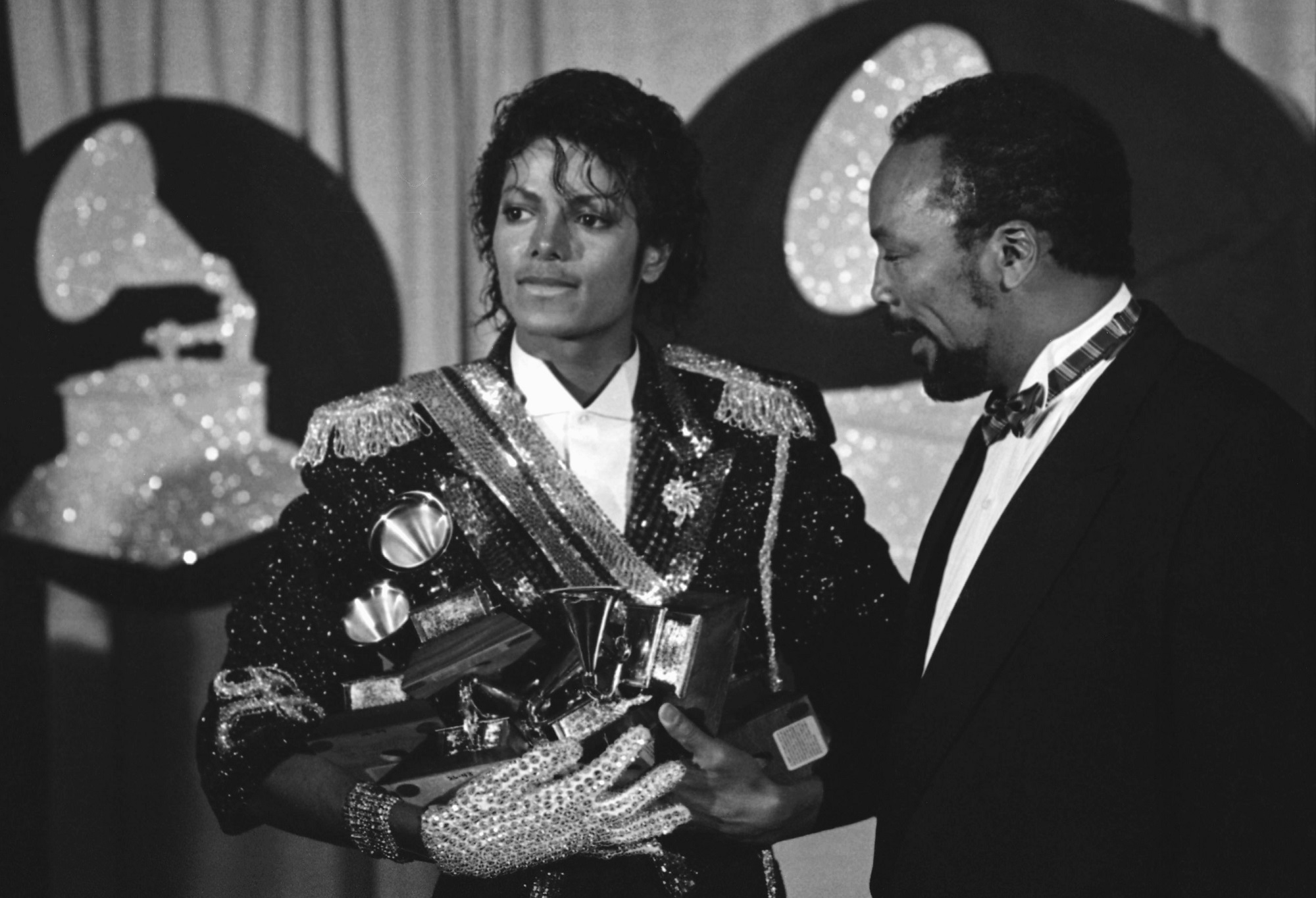A jury on Wednesday found that Michael Jackson’s estate owes Quincy Jones $9.4 million in royalties and production fees from Billie Jean, Thriller and more of the superstar’s biggest hits. The award from a Los Angeles Superior Court jury fell short of the $30 million the legendary producer sought in the lawsuit filed nearly four years ago. The Jackson estate had put the figure at about $392,000. The jury of 10 women and two men had been deliberating since Monday.
“This lawsuit was never about Michael, it was about protecting the integrity of the work we all did in the recording studio and the legacy of what we created,” Jones wrote in a statement. “Although this (judgment) is not the full amount that I was seeking, I am very grateful that the jury decided in our favor in this matter. I view it not only as a victory for myself personally, but for artists’ rights overall.”
Jones claimed in the lawsuit that Jackson’s estate and Sony Music Entertainment owed him for music he had produced that was used in the concert film This Is It and two Cirque du Soleil shows that used Jackson’s songs. The lawsuit said the entities had improperly re-edited the songs to deprive Jones of royalties and production fees, and that he had a contractual right to take first crack at any re-edit or remix. The Jackson camp held that Jones should only be paid licensing fees for songs used in those three productions. Jones claimed he was entitled to a share of the overall receipts from them. The estate had no immediate comment on the verdict.
The trial centered on the definitions of terms in the two contracts Jackson and Jones signed in 1978 and 1985. Under the deals, for example, Jones is entitled to a share of net receipts from a “videoshow” of the songs. The Jackson attorneys argued that the term was meant to apply to music videos and not feature films. Jones took the stand during the trial, and was asked by Jackson estate attorney Howard Weitzman whether he realized he was essentially suing Jackson himself. Jones angrily disagreed.
“I’m not suing Michael,” he said. “I’m suing you all.”




